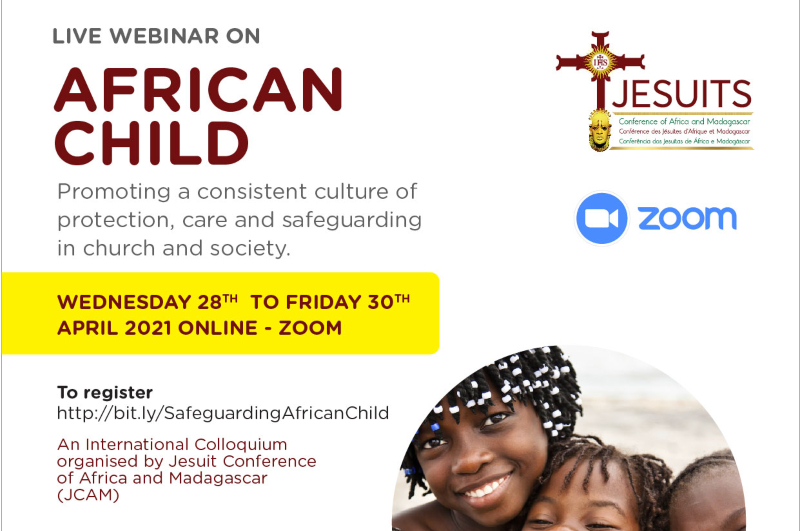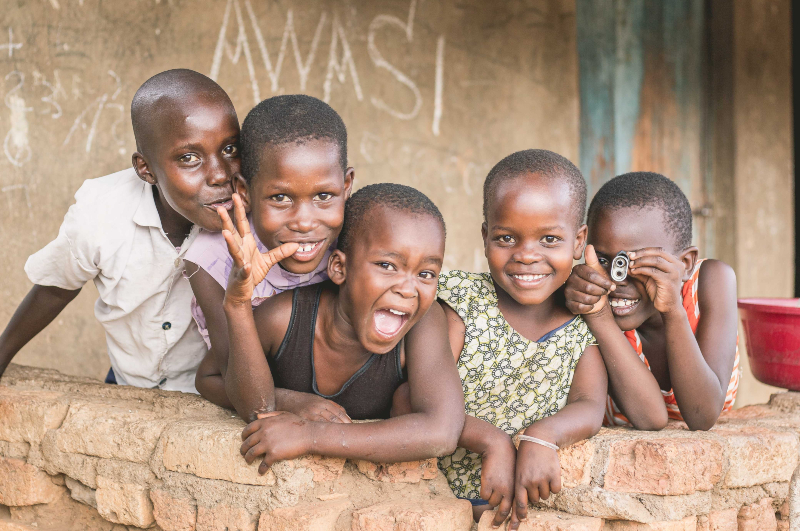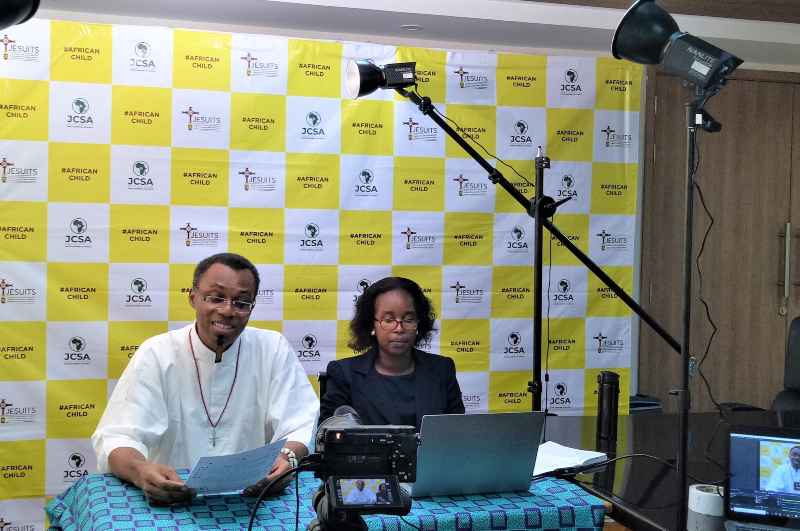


The Jesuit Conference of Africa and Madagascar (JCAM) organised a virtual international colloquium dubbed “African Child: Promoting a Consistent Culture of Protection, Care and Safeguarding in Church and Society” from April 28-30, 2021.
The event brought together not only participants from the Society of Jesus but, laypersons, church leaders, and representatives from other Religious Orders and Congregations from across the continent.
The three-day online colloquium aimed to: develop a concrete response to Pope Francis’s clarion call to “say ‘never again’ to every form of abuse”; contribute to the global “task regarding all of us as the People of God” to create a safe environment for all, especially children, in Church, family and society; present current research, thinking and best practice in the field of child protection and safeguarding from multiple perspectives in the context of the Church, family and society in Africa; and convene practitioners and experts, alongside theologians and other scholars, to explore together the challenges, tasks and commitments presented by sexual abuse of children and vulnerable adults for the Church, family, and society in Africa.
This colloquium opened a new path of multidisciplinary inquiry and constructive conversation by academics and practitioners about the global phenomenon of clergy sexual abuse in the context of Church and society in Africa. It also offered an opportunity for formation and capacity building for the Christian community, leaders and pastoral agents.
The themes, topics, and presenters were as follows:
Theology, Conversion and Ecclesial Leadership
1. Combatting clericalism and patriarchy as instruments of abuse in Church and society – Sr. (Dr.) Josée Ngalula (DR Congo)
Pope Francis has consistently maintained the role of clericalism in perpetrating and perpetuating a “culture of death” and abuse of children and vulnerable adults. “To say ‘no’ to abuse is to say an emphatic ‘no’ to all forms of clericalism.” (“Letter to the People of God,” no. 2). At the root of clericalism is the practice of patriarchy in Church and society. Of particular salience is the violence against and abuse of women and its ramification for the abuse of children in general. This presentation will explore ways of exposing the cultural, structural and ideological underpinnings of clericalism, patriarchy and gender-based violence and offer insights on how to mitigate their impact and overcome them.
2. Responsibility, accountability and transparency: the role of leadership in protection and safeguarding – Fr. (Dr.) Lawrence Daka SJ (Zimbabwe)
In recent years leadership has emerged as a critical factor in the scandal of abuse in Church and society. Many cases of abuse have revealed leadership as complicit and culpable in the abuse of power, sexual abuse and the abuse of conscience. Pope Francis places responsibility for change primarily on “pastoral leaders.” This presentation explores best practice in the area of leadership and the critical importance of personal and institutional conversion which enables genuine responsibility, accountability and transparency, and how religious leaders and the institutions they lead can be helped to imbibe and practice these principles.
3. Renewing the theology of Church as body of Christ in the age of clergy sexual abuse of children and vulnerable adults – Fr. (Dr.) Joachim Zoundi SJ (Burkina Faso)
Pope Francis has written about “deep wounds of pain and powerlessness” and “ecclesial wounds” inflicted on the Church by those who abuse of children. Also, he points out that an adequate response is “a task regarding all of us as the People of God.” This presentation will consider new ways of looking at the Church as the body of Christ that would adequately account for its grave sinfulness and vulnerability, outline a path towards healing and present a systemic approach to conversion beyond fragmented and isolated responses.
4. Empowering the faithful as agents of change: a view from the pew – Professor Philomena Mwaura (Kenya)
When Pope Francis categorises clergy sexual abuse of minors and vulnerable people as “ecclesial wounds” that also “harm the community of faithful” he does not intend by that an abstraction. Although “Church” has become almost synonymous with bishops and priests, its true meaning and understanding comprises a community of believers – baptised women, men and children called to worship, minister and serve in the Church. To replace, ignore, silence or diminish the vocation, voice and participation of the lay faithful is a negation of the true meaning of Church and “every one of the baptized should feel involved in the ecclesial and social change that we so greatly need.” Besides, “It is impossible to think of a conversion of our activity as a Church that does not include the active participation of all the members of God’s People” (“Letter to the People of God,” no. 2). This presentation will examine how the community of faithful has experienced the harm of abuse, explore their role in holding clerics accountable and identify ways and means of leading genuine ecclesial and social change.
Culture, Spirituality and Society
5. Cultural beliefs and practices at the root of abuse – Joyce Kinyanjui (Kenya)
Culture is a double-edged sword with positive values and death-dealing practices. African cultures are no exception. This presentation will explore the broad range of cultures in Africa relating to Church, family and society. It will highlight the structural elements within them that create the environment for abuse and those elements that can strengthen the practice of justice, “solidarity and commitment to a culture of care that says ‘never again’ to every form of abuse” (“Letter to the People of God,” no. 2), in order to understand what can lead to abuses in our cultures and what can prevent us from talking about them.
6. African spirituality at the service of protection and safeguarding – Dr. Annemarie Paulin-Campbell (South Africa)
Pope Francis exhorts the Church to embrace a path of shame, penance, prayer, fasting, forgiveness and conversion. The practice of spirituality in Africa is a life-giving experience that embodies these elements. Drawing on some of the underlying positive tenets of this spirituality this presentation will also explore other traditions of spirituality, notably Ignatian spirituality, and identify concrete spiritual resources for responding to the crisis of abuse in Church, family and society both as individuals and as communities and institutions.
7. Media ethics in the age of abuse: challenges, prospects and lessons learned – Fr. Russell Pollitt SJ (South Africa)
The media has been key to exposing and concealing or obfuscating incidence of child sex abuse by Catholic clergy. This presentation explores the role of the media as powerful social and political tool that could also become complicit in creating the environment for the abuse of persons, for example through advertising and various forms of social media. Also, it will analyse the ethical framework necessary for ensuring that communication media offer positive conditions for strengthening respect of human dignity, generate just narratives of victims and survivors, and assists institutions and organizations to assume the task of protection and safeguarding with transparency.
8. Legal environment and framework for promoting protection and safeguarding – Triza Gacheru (Kenya) (Kenya)
Several national and international bodies have enacted and adopted various instruments and legislation focusing on child protection, including strict legal and policy frameworks on standards of reporting and handling cases of abuse. Such statutory provisions and standards need to be incorporated into policies and protocols on sexual abuse of minors and vulnerable adults. This presentation will identify and analyse the relevant national and international statutory standards and their relevance for developing and enhancing policies and protocols adopted by religious institutions and communities in Africa to prevent abuse of children and vulnerable adults.
9. Research Findings on Safeguarding the primacy of parents in child care and protection: The role employer organisations in Church and Society can play.- Josephine Waweru and Beatrice Churu (Kenya)
Parents are the primary caregivers for children by natural right and duty. Their presence and accompaniment of children secures these physically and cultivates in them the inner strength to be able to be proactive self-caring individuals. The prolonged absence of parents in the life of children creates needy and insecure children, more vulnerable to abuse of all kinds in their childhood and even in adulthood. More often than not, the absence of parents is necessitated by work and livelihoods pre-occupations, some responding to dire need and others misguided notions. Thus socio-economic structures are enablers of abuse by nurturing vulnerability. There is a need for a cultural revolution to promote parental roles in the children's lives and turn this and fragilization of children around. Ecclesial institutions as employers and as opinion leaders can champion such a revolution that can accrue to substantive prevention of abuse of minors and vulnerable adults.
Formation, Theological Education and Empowerment
10. Holistic formation and accompaniment of victims and survivors of abuse in religious communities – Fr. Noel Nwadike SJ (Nigeria)
Current studies suggest that for a long time religious communities were largely unequipped to provide an integrated and adequate psycho-sexual formation for members. Some religious communities have been involved and complicit in the abuse of children. This presentation will explore some practical resources to support religious institutions and formators in their task of providing integral human formation, preventing abuse, and journeying with victims and survivors towards a path of healing and wholeness.
11. Theological education as a resource for consistent culture of protection and safeguarding – Fr. (Dr.) Jean Messingué SJ (Abidjan, Ivory Coast)
The role of theology in the context of clergy sexual abuse is critical, albeit not much theological research has occurred in this area. Theology has either missed or been largely silent on the scandal of clergy sexual abuse of children and vulnerable adults. This presentation will explore the programme and context of the formation of ecclesial agents and personnel in order to identify gaps and propose models of theological education that promote the emergence of a consistent culture of protection and safeguarding rooted in the fundamental beliefs of the Christian religion.
12.To break the code of silence: empowering individuals and communities to face sexual abuse in the Catholic Church and Society in Africa – Sr. (Dr.) Solange Sahon Sia (Abidjan, Ivory Coast)
Institutions like family, religious communities and churches in Africa are often accused of a form of “omertà” (code of silence) on the abuses that are allegedly committed within them, albeit the practice of maintaining silence on the issue of abuse is not unique to Africa. In particular, religious life can be the place where some people experience abuse, especially of power and conscience. This presentation analyses the cultural and institutional dimensions of abuse, the conditions of vulnerability that can lead to abuse in religious communities and the responsibility that lies with religious institutions and communities. Also, it identifies and proposes strategies to create a safe environment capable of empowering an authentic religious life that takes into account African realities.
The papers presented will be edited into a single resource volume and made available for publication to inform further research, study, formation, and practice.
We would like to thank all the JCAM president for his opening and closing remarks and daily prayer, the keynote speaker Ms. Rita Martin Lopidia (South Sudan), the presenters, the over 200 participants, the JCAM Safeguarding Office, and the JCAM Communication team for their great contribution to the success of the colloquium.
If you missed the three-day event, please click {HERE}
Related Articles
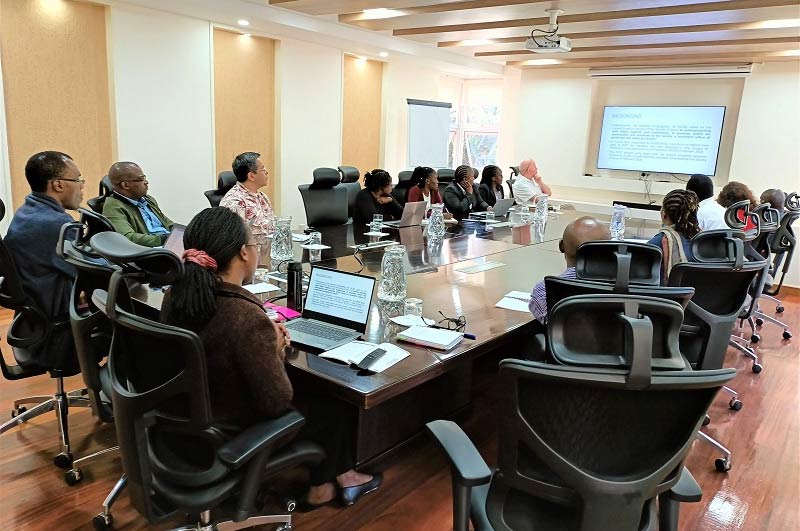
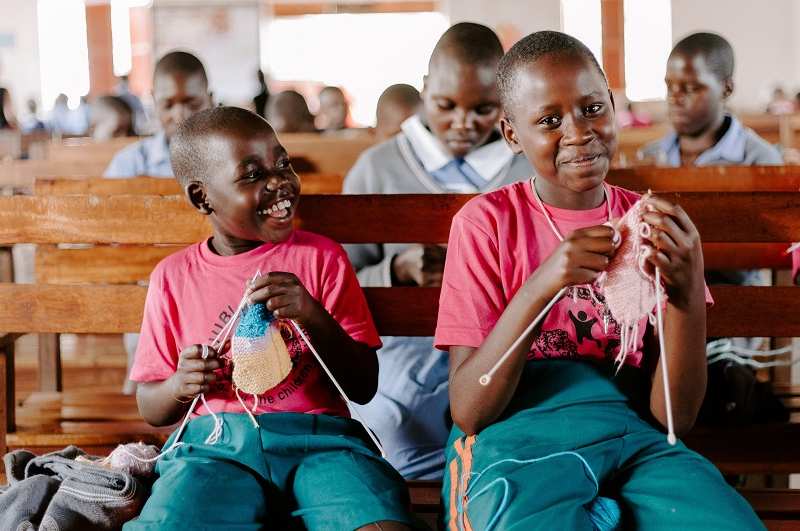
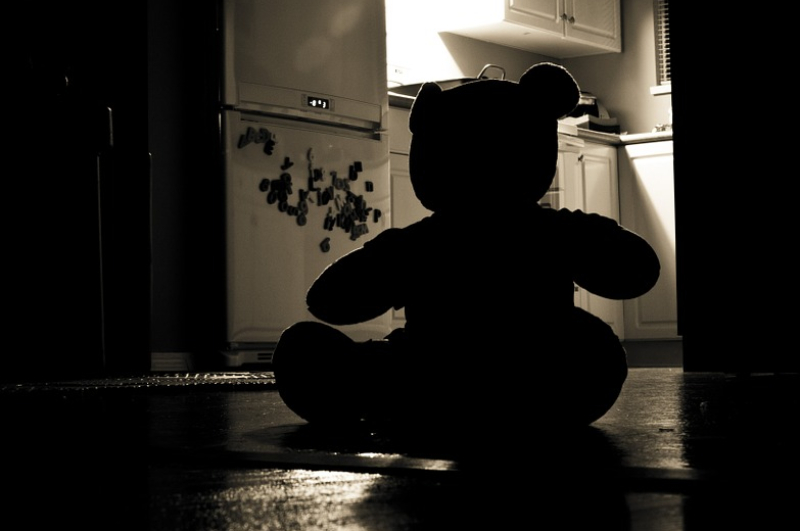
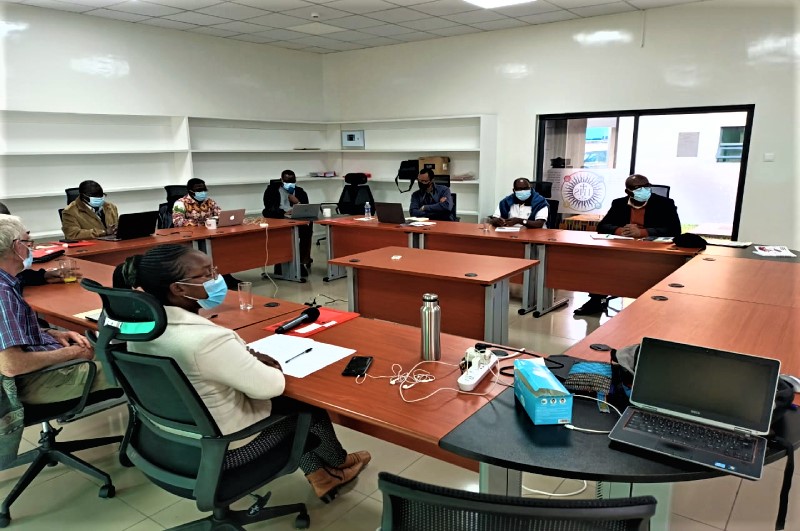

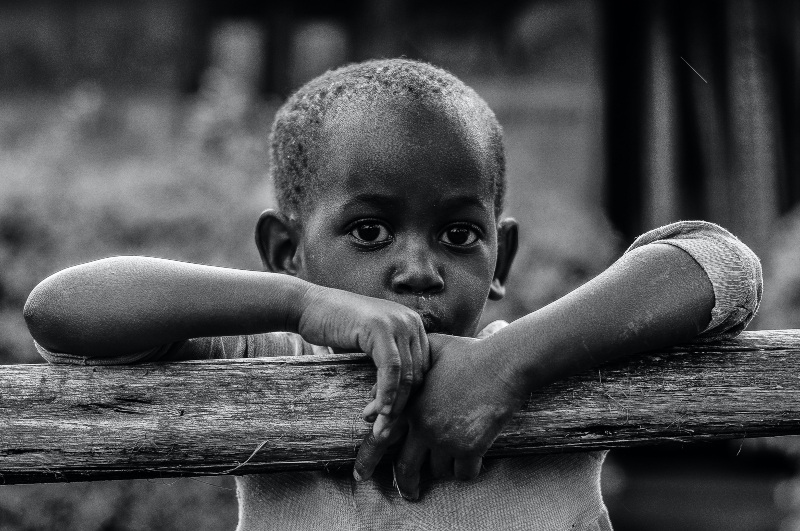
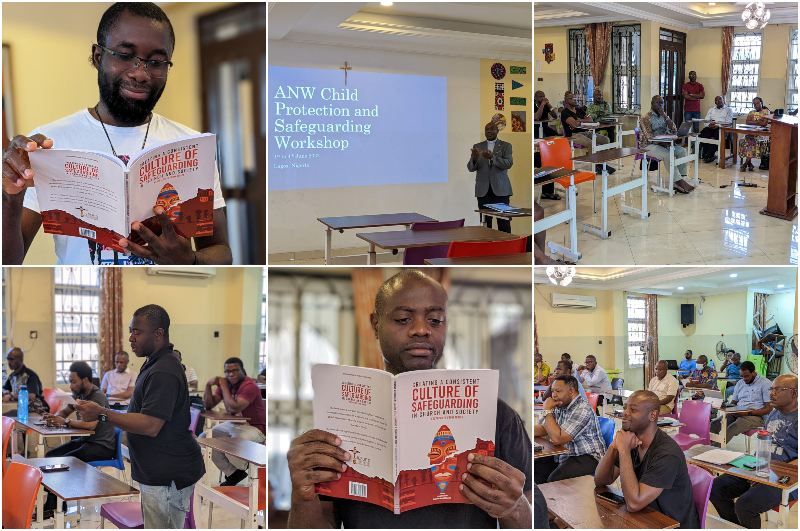
Select Payment Method
Pay by bank transfer
If you wish to make a donation by direct bank transfer please contact Fr Paul Hamill SJ treasurer@jesuits.africa. Fr Paul will get in touch with you about the best method of transfer for you and share account details with you. Donations can be one-off gifts or of any frequency; for example, you might wish to become a regular monthly donor of small amounts; that sort of reliable income can allow for very welcome forward planning in the development of the Society’s works in Africa and Madagascar.
Often it is easier to send a donation to an office within your own country and Fr Paul can advise on how that might be done. In some countries this kind of giving can also be recognised for tax relief and the necessary receipts will be issued.


